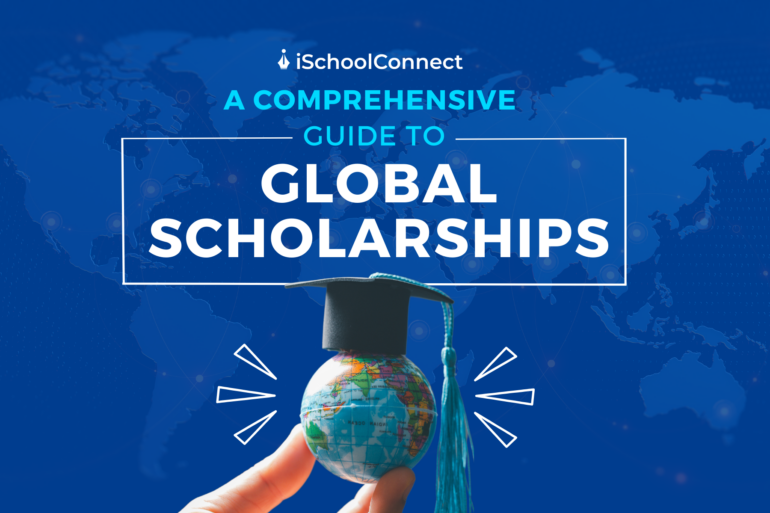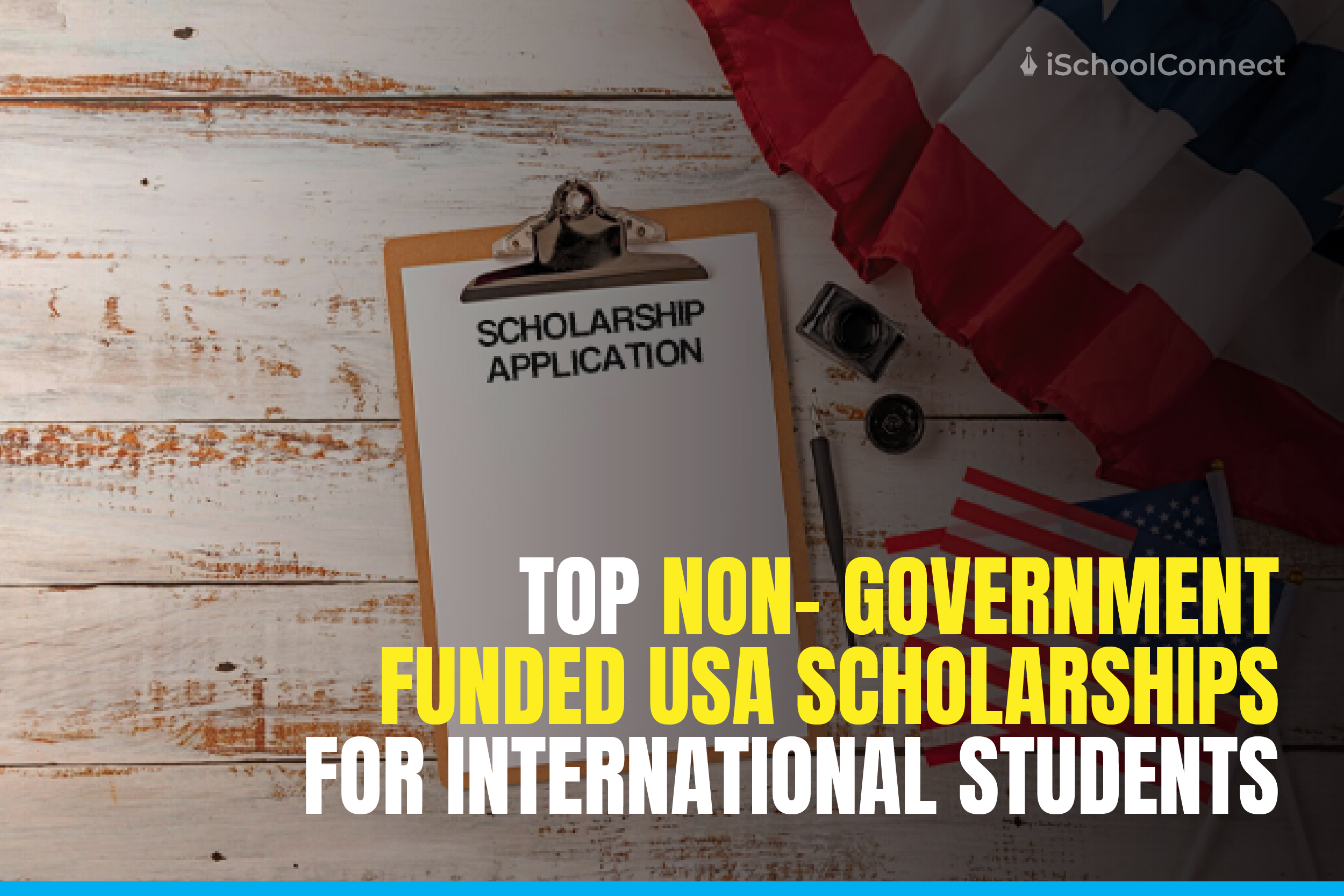Table of Contents
Global scholarships | Empowering the future
In the pursuit of higher education, the quest for global scholarships has become more crucial than ever. As students aspire to broaden their academic horizons and gain exposure to diverse cultures, global scholarships offer a chance at international education. This blog aims to discuss the intricacies of global scholarships, providing insights into the types, application processes, and key considerations for prospective applicants.
Understanding global scholarships
Designed to support students in their pursuit of education beyond national borders, global scholarships encompass a wide array of financial aid opportunities. Governments, international organizations, educational institutions, and private entities offer these scholarships with the common goal of fostering cross-cultural exchange and facilitating academic excellence on a global scale.
Types of global scholarships

- Government scholarships- Many countries actively encourage international students to pursue courses within the national borders by offering government-sponsored scholarships. These scholarships often cover tuition fees, living expenses, and sometimes even travel costs. Notable examples include the Fulbright Scholarship in the United States and the Chevening Scholarship in the United Kingdom.
- University scholarships- Numerous universities worldwide offer scholarships to attract top-tier international students. These scholarships may be merit-based, need-based, or a combination of both. Some institutions also have specific scholarships for students from certain regions or academic disciplines.
- International organizations- The United Nations, the World Bank, the European Union, and other such organizations provide scholarships to students interested in fields related to their mission. These scholarships aim to cultivate a global perspective and contribute to the development of solutions to pressing global challenges.
- Private foundations and corporations- Private entities, including foundations and corporations, often contribute to the global scholarship landscape. These scholarships may be linked to specific industries, professions, or social causes, reflecting a commitment to fostering talent in particular areas.
Application process
- Research and eligibility criteria- Before applying for global scholarships, it is imperative to conduct thorough research on the available opportunities. Understand the eligibility criteria, application deadlines, and required documentation for each scholarship. Tailor your applications to align with the specific requirements of each scholarship program.
- Academic excellence- Many global scholarships are merit-based, emphasizing academic achievement. Maintain a strong academic record throughout your educational journey, which will significantly enhance your chances of securing scholarships.
- Language proficiency- An essential requirement for global scholarships is proficiency in the language of instruction. Ensure that you meet the language proficiency standards specified by the scholarship providers. This may involve taking standardized tests, such as the TOEFL or IELTS.
- Letters of recommendation- Strong letters of recommendation can be influential in the scholarship selection process. Choose people who can attest to your character, academic capabilities, and potential for success in the chosen field of study in the letter of recommendation.
- Statement of purpose- Craft a compelling and well-articulated statement of purpose that outlines your academic and career goals, as well as how the scholarship aligns with your aspirations. Clearly convey how the scholarship will contribute to your personal and professional development.
- Financial documentation- Some scholarships require detailed financial documentation to assess your need for financial assistance. Provide accurate information about your financial status, including income, assets, and expenses.
Key considerations for applicants
- Diversity and inclusion- Embrace the diversity of scholarship opportunities available globally. Consider scholarships that cater to specific regions, ethnicities, or underrepresented groups. Many organizations actively seek to promote diversity and inclusion in their scholarship programs.
- Networking and community engagement- Engage with the global academic community by participating in conferences, seminars, and networking events. Building a strong network can not only enhance your academic experience but also open doors to scholarship opportunities through recommendations and connections.
- Be mindful of cultural differences- When applying for scholarships in different countries, be careful about cultural nuances. Tailor your application materials to align with the cultural expectations and values of the host country or institution.
- Stay informed about policy changes- Global scholarship landscapes are dynamic, with policies and opportunities subject to change. Stay informed about any updates, policy changes, or new scholarship programs that may align with your academic and career goals.
Key takeaways
- Global scholarships come from various sources, including governments, universities, international organizations, and private entities. Explore a diverse range of opportunities to find the one that best suits your goals.
- Before applying, conduct detailed research on each scholarship. Understand eligibility criteria, application deadlines, and required documentation. Tailor your applications to meet specific requirements, showcasing a genuine interest.
- Some programs cater to specific regions, ethnicities, or underrepresented groups. Seek scholarships that align with your background and contribute to a diverse and inclusive academic community.
- Global scholarship landscapes are dynamic, with policies and opportunities subject to change. Stay informed about updates, policy changes, or new scholarship programs.
If you liked this blog and have additional questions or specific inquiries, we welcome you to share your thoughts in the comments section below. For further assistance or more detailed information on pursuing global scholarships, don’t hesitate to reach out to us. Click here to contact our team, and we’ll be delighted to help address your queries.
Liked this blog? Read next: Auburn University student life | An essential guide
FAQs
Q1. Do global scholarships have restrictions on the countries of origin?
Ans- Some scholarships may have restrictions on the countries of origin, while others are open to applicants from any part of the world. It’s crucial to check the eligibility criteria for each scholarship to determine whether there are any country-specific restrictions.
Q2. Can I apply for global scholarships at any stage of my academic journey?
Ans- Global scholarships are available at various stages of an individual’s academic journey. Some scholarships are open to undergraduate students, while others target postgraduate or doctoral candidates.
Q3. Can I apply for a global scholarship before receiving an admission offer from a university?
Ans- While some scholarships require proof of admission or enrollment, others allow you to apply before securing admission. It’s essential to check the requirements of each scholarship. If admission is required, focus on securing a place in your chosen program before applying for the scholarship.






